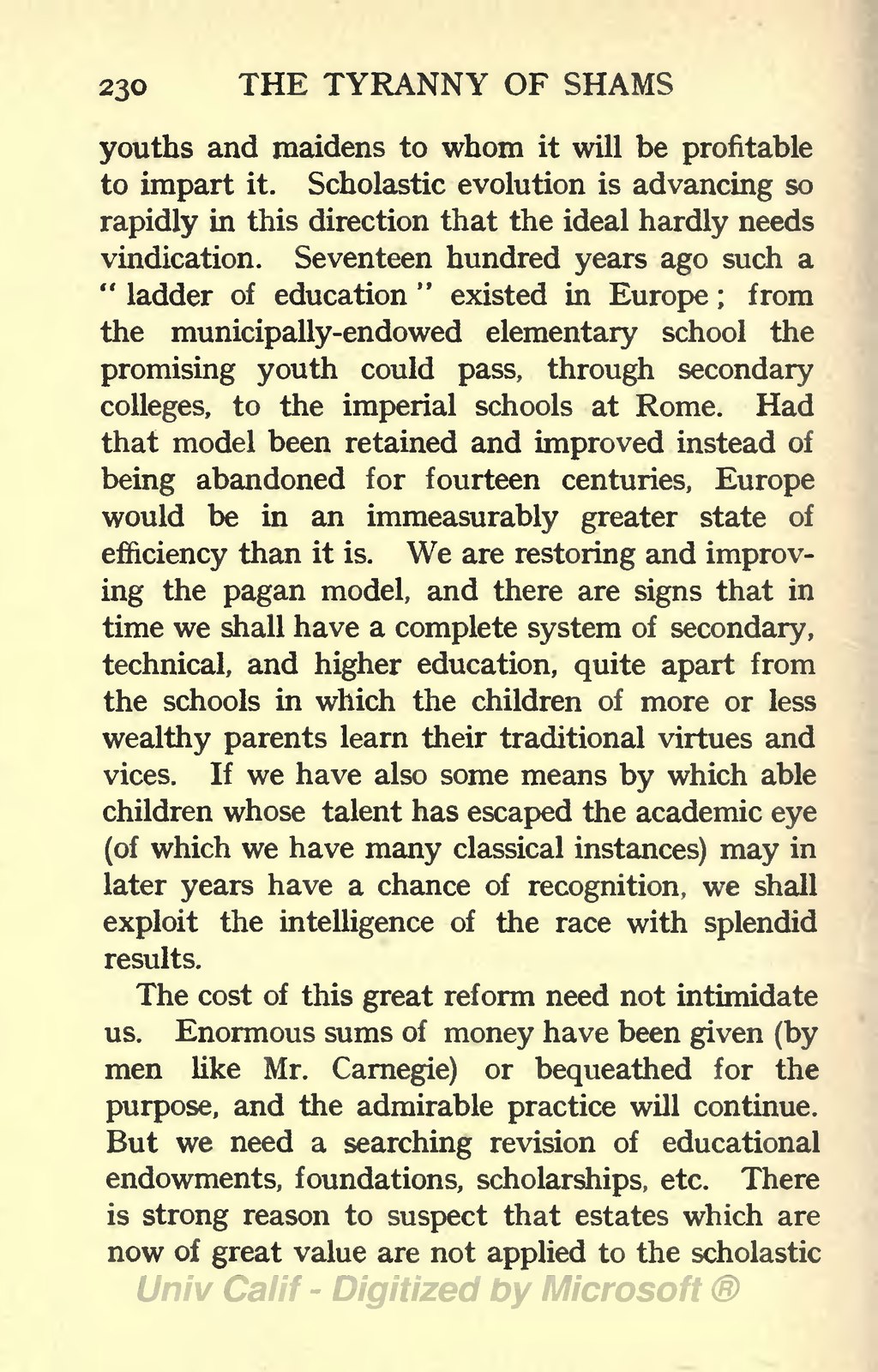youths and maidens to whom it will be profitable to impart it. Scholastic evolution is advancing so rapidly in this direction that the ideal hardly needs vindication. Seventeen hundred years ago such a “ladder of education” existed in Europe; from the municipally-endowed elementary school the promising youth could pass, through secondary colleges, to the imperial schools at Rome. Had that model been retained and improved instead of being abandoned for fourteen centuries, Europe would be in an immeasurably greater state of efficiency than it is. We are restoring and improving the pagan model, and there are signs that in time we shall have a complete system of secondary, technical, and higher education, quite apart from the schools in which the children of more or less wealthy parents learn their traditional virtues and vices. If we have also some means by which able children whose talent has escaped the academic eye (of which we have many classical instances) may in later years have a chance of recognition, we shall exploit the intelligence of the race with splendid results.
The cost of this great reform need not intimidate us. Enormous sums of money have been given (by men like Mr. Carnegie) or bequeathed for the purpose, and the admirable practice will continue. But we need a searching revision of educational endowments, foundations, scholarships, etc. There is strong reason to suspect that estates which are now of great value are not applied to the scholastic
